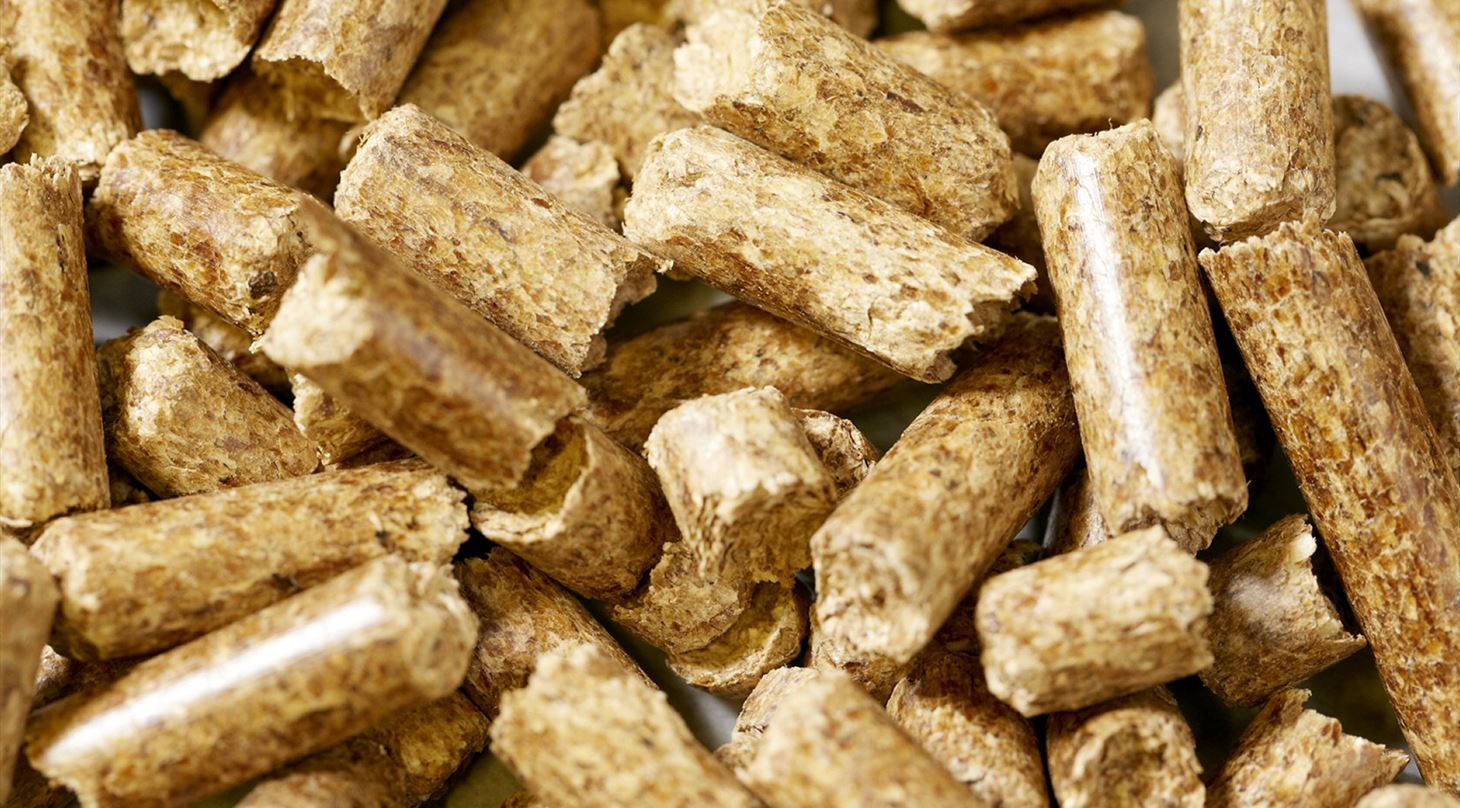
Pelletizing
Pelletized animal feed and biomasses
We offer seamless product testing and development of your pellet products.
Pelleting of raw materials has several advantages, especially when it comes to feedstuff and biomass materials. Pelleting can increase hygiene through temperature treatment, increase nutritional value and reduce dust. In the pelleting process all ingredients are combined into one pellet.
Raw materials influence the physical quality of pellets. That is reflected in the binding-ability, which is the materials ability to retain the form into which it has been pressed, given that it has been pressed without having been mixed with other materials. Binding properties are normally enhanced by treatment with steam or binders. The compressibility of a simple raw material is the amount by which the material can be pressed.
Danish Technological Institute offers to test the pelletizing properties of biomass and feed products. Our results can be used to document the properties of the product or for feed tests.
Our pilot test facilities give you the opportunity to try out new formulas, ingredients, and additives for feed in pilot scale without interrupting your existing production. You gain access to test various process parameters. For example, we offer the possibility to make adjustments in the amount of ingredients or test the impact of different types of binders on pellet quality.
We offer pelletizing of several kg to tons, and we are approved by the competent Danish authorities for production.
Power consumption or energy use is a key element in producing pellets. Pelleting itself can account for more than half of the electrical consumption. Factors that can decrease the electrical consumption of the pelleting process can be specific ingredients that are added to the meal mix before pelleting. Other factors that play a significant role in energy consumption are steam condition, diet formulation, retention time in the conditioner and die design.
Danish Technological Institute offers a unique opportunity to evaluate specific energy consumption per ton of feed when pelleting animal feed.
(Read more about Energy experiments here)
Process and product development of pelletized feed
Discussion on test setup - which parameters / ingredients are relevant to test:
- Purchase of raw materials, grinding, weighing, mixing, and pelleting
- Production of feeds with your ingredients
- Quality analyses (PDI, density, moisture content)
- Data recording
- Shipping of the feed/samples to the trial facility or lab
- Short report with results and sample products for analyses.
Capacities from a few kg up to 3000 kg/hour.
Our services: Pilot production of food and feed